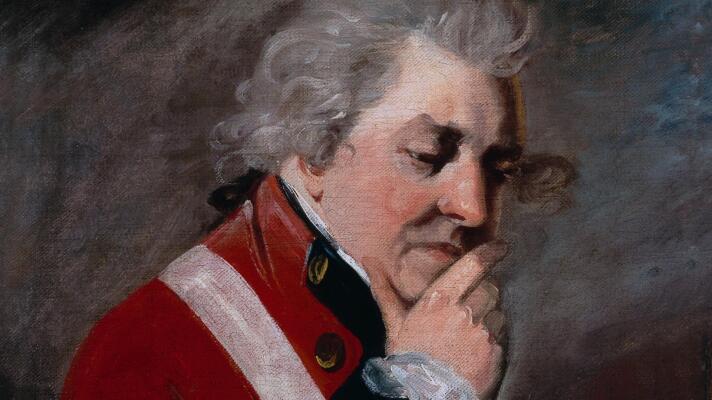Extras
Historian Annette Gordon-Reed. The American Revolution premieres November 16.
Preview:
0:20
A single shot echoes on Lexington Green, and the American Revolution begins.
Clip:
0:43
The filmmakers on how understanding the people of the Revolution can help us understand who we are.
Clip:
3:37
Filmmakers discuss how they used stories of both well-known and lesser known figures.
Clip:
10:33
The filmmakers discuss how the story of The American Revolution came together.
Clip:
3:57
The filmmakers discuss how they crafted imagery to help tell the story of the American Revolution.
Clip:
6:29
John Adams, read by Paul Giamatti. The American Revolution premieres November 16.
Preview:
0:30
A spark ignites—quiet, unstoppable. What follows changes everything.
Clip:
0:50
The filmmakers on how they tapped a broad range of influences to recreate the music of the era.
Clip:
5:13
Historian Stephen Conway on the psychological impact of Saratoga on the British.
Clip:
0:33
Latest Episodes
All
-
All
-
Be Smart Season 13
-
Be Smart Season 12
-
Be Smart Season 11
-
Be Smart Season 10
-
Be Smart Season 9
-
Be Smart Season 8
-
Be Smart Season 7
-
Be Smart Season 6
-
Be Smart Season 5
-
Be Smart Season 4
-
Be Smart Season 3
-
Be Smart Season 2
-
Be Smart Season 1
Seedless fruits are delicious, convenient… and completely unnatural.
Episode:
S13
E10
|
14:51
What does randomness really mean? And why your digital life depend on it?
Episode:
S13
E9
|
21:13
Why do we have different blood types? And why do we have blood at all?
Episode:
S13
E8
|
16:20
How did dinosaurs become birds—and what good is half a wing?
Episode:
S13
E7
|
16:18
Just how big would a telescope need to be to actually see an alien world in detail?
Episode:
S13
E6
|
16:00
Dire wolves are back—sort of.
Episode:
S13
E5
|
26:19
The key enzyme behind photosynthesis isn’t actually all that great at its job.
Episode:
S13
E4
|
16:53
The oldest rocks on Earth are more than just ancient—they’re time machines!
Episode:
S13
E3
|
16:40
This is one of the weirdest mysteries of human evolution: Why do we have grandmas?
Episode:
S13
E2
|
17:11
Why do some people taste music or hear colors? Let’s talk about synesthesia.
Episode:
S12
E18
|
12:28






















